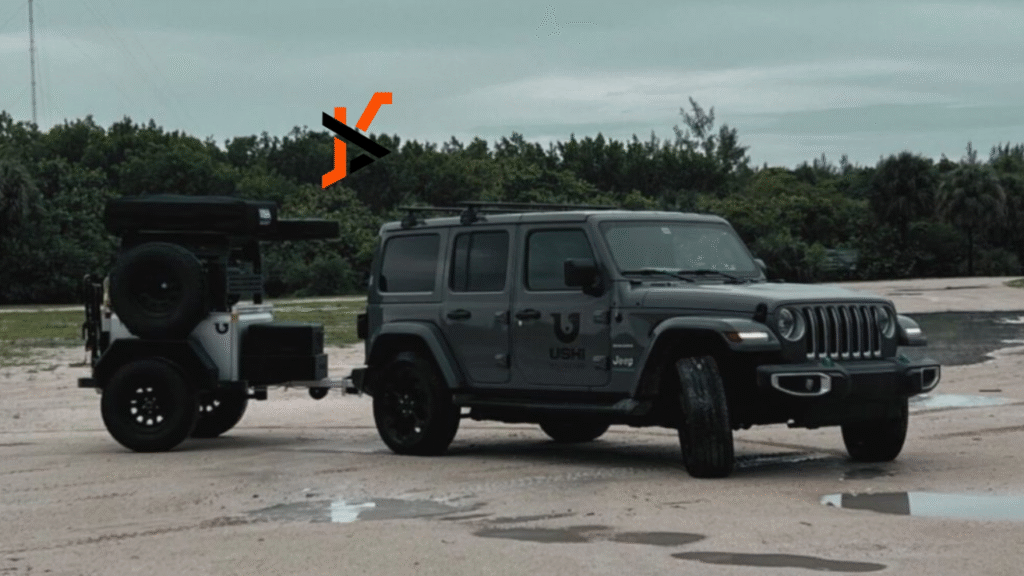Trailers are an indispensable tool for a variety of transportation needs, whether for personal use, business logistics, or recreational activities. Choosing the right trailer and using it correctly is paramount to ensure the safety of your cargo and others on the road. In this article, we will explore key factors to consider when selecting a trailer and offer practical advice for its usage.
Understanding Your Requirements
Before making any decisions, it is important to have a clear understanding of your specific needs. Consider what you will be hauling, the weight of your cargo, and your towing vehicle’s capacity. These elements will significantly influence the type of trailer that will best suit your needs.
Trailer Types and Purposes
There are several types of trailers available on the market, each designed for specific purposes. From open utility trailers ideal for landscaping supplies to enclosed trailers for protecting goods from the weather, it’s crucial to select a model that matches your primary usage.
Size and Load Capacity
Selecting the right size and load capacity is essential. A trailer that is too small won’t handle the volume of your cargo, while one that is too large can be unwieldy and unnecessary. It’s important to know the Gross Vehicle Weight Rating (GVWR) and ensure it aligns with your towing vehicle’s specifications.
Towing Vehicle Compatibility
The trailer’s compatibility with your towing vehicle cannot be overlooked. Check your vehicle’s towing capacity, hitch type, and electrical connector type. Your trailer and towing vehicle must be compatible in these areas to ensure safe transportation.
Safety Features
Safety should always be the top priority. Look for trailers with sturdy construction, reliable brakes (if applicable), appropriate lighting, and reflectors. Additionally, consider features like tie-down points for securing cargo, as well as the overall balance and stability of the trailer.
Licensing and Regulations
Be aware of licensing requirements and road regulations regarding trailers in your area. Depending on the size and weight of your trailer, you may need additional permits or to follow specific rules for safe and legal travel.
Quality and Durability
A trailer is a significant investment, and you want one that will last. Choose a trailer constructed with high-quality materials. Consider the terrain and weather conditions it will be exposed to and make sure it is built to withstand those elements.
Maintenance Considerations
Maintenance is vital to ensure the longevity and safety of your trailer. Routine checks and upkeep, such as inspecting tires, wheel bearings, and checking for rust or damage, will preserve its condition and functionality.
Security Measures
When your trailer is not in use, it can be susceptible to theft. Invest in security locks for the hitch and wheels. Store it in a safe location and consider using a cover to protect it from the elements and conceal it from potential thieves.
Practical Loading Tips
Loading your trailer correctly is essential for safe handling during transit. Distribute weight evenly and secure your cargo to prevent movement. Avoid overloading and make sure your cargo doesn’t obstruct your vehicle’s lights or license plate.
Driving with a Trailer
When you drive with a trailer, it changes the dynamics of your vehicle. Practise manoeuvring, reversing, and getting familiar with the different braking distances and turning radius. Anticipate road conditions and give yourself extra space for stopping and turning.
Understanding Trailer Sway
Trailer sway is a common issue and can be dangerous if not managed properly. It’s typically caused by improper loading, high winds, or being passed by larger vehicles. Knowing how to reduce sway through proper weight distribution and driving techniques is important.
Insurance and Protection
Don’t forget to ensure that your trailer is covered by insurance. This will protect you from financial loss in case of damage or theft. Ensure that your policy is up to date and provides adequate coverage for your needs.
Advanced Equipment and Accessories
Consider investing in advanced equipment and accessories that enhance the functionality of your trailer. Items such as ramps for easy loading, toolkit holders for on-the-go repairs, and custom storage solutions can improve your overall experience.
Conclusion
Understanding your requirements and conducting due diligence when choosing and using a trailer will save you time and prevent potential headaches. Always prioritise safety, follow legal regulations, maintain your trailer regularly, and take the time to practice driving with it attached. By investing in a high-quality trailer and adhering to these essential tips, you can master mobility and transport your goods with confidence.

